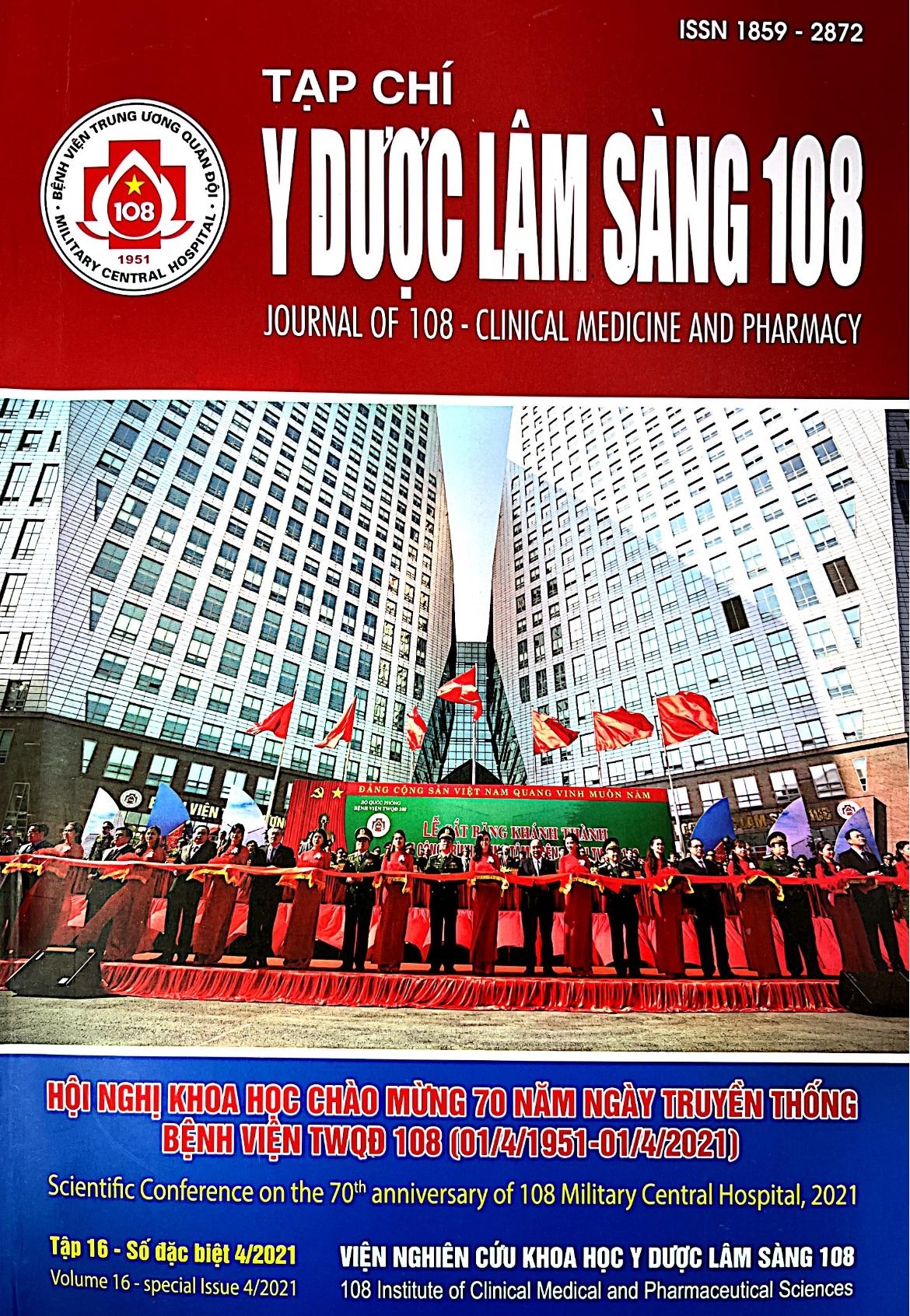Comparison of antibiotic resistance of common pathogenic bacteria isolated in Hue University of Medicine and Pharmacy Hospital in 2018 and 2019
Main Article Content
Keywords
Abstract
Objective: To compare on antibiotic resistance of common pathogenical bacteria isolated in 2018 and 2019 at Hue UMP Hospital. Subject and method: Use of the agar disk diffusion method to test the susceptibility to antimicrobial agents of 1343 bacterial strains from infected patients hospitalized in HueUMP Hospital in 2018-2019. Result: In 2018, the positive culture rate was 25.3%, and it’s 21.3% in 2019. The isolated common pathogenical bacteria strains were Staphylococcus aureus, E. coli, Pseudomonas aeruginosa, Klebsiella spp. and Acinetobacter spp. The strains of S. aureus increased significantly resistance to antimicrobial agents, MRSA (+) increased from 67.3% in 2018 to 85.5% in 2019. Most of the isolated bacterial strains increased resistance to antimicrobial agents, and only a few antimicrobial agents decreased the resistance of the bacteria. Especially the Ps. aeruginosa and intestinal bacteria were still highly susceptible to meropenem, cephalosporin, tetracyclin… (over 90%). Conclusion: The common bacterial strains tend to increase the antimicrobial resistance, we need to manage the use of antibiotics and use more rationally, with more strict antibiotic indications.
Article Details
References
2. Bộ Y tế (2013) Kế hoạch hành động quốc gia về chống kháng thuốc giai đoạn từ năm 2013 đến năm 2020. Phê duyệt kèm theo Quyết định số 2174/QĐ-BYT ngày 21 thán 6 năm 2013 của Bộ trưởng Bộ Y tế) Hà Nội, tháng 06/2013.
3. Bộ Y Tế (2017) Hướng dẫn quy trình xét nghiệm vi sinh lâm sàng. Nhà xuất bản Y Học, Hà Nội.
4. Báo cáo của Bộ Y tế-Việt Nam phối hợp với Dự án Hợp tác toàn cầu về kháng kháng sinh GARP Việt Nam và Đơn vị Nghiên cứu Lâm sàng ĐH Oxford. Báo cáo sử dụng kháng sinh và kháng kháng sinh tại 15 bệnh viện Việt Nam năm 2008-2009. Hợp tác toàn cầu về kháng kháng sinh – GARP-Việt Nam.
5. Nguyễn Phú Hương Lan, Nguyễn Văn Vĩnh Châu, Đinh Nguyễn Huy Mẫn, Lê Thị Dưng, Nguyễn Thị Thu Yến (2012) Khảo sát mức độ đề kháng kháng sinh của Acinetobacter và Pseudomonas phân lập tại Bệnh viện Bệnh Nhiệt đới năm 2010. Thời sự Y học, số 68, 2012, tr. 9-12.
6. Hồ Thị Họa Mi, Trần Đình Bình (2019) Nghiên cứu tình hình sử dụng kháng sinh, đề kháng kháng sinh và các yếu tố liên quan tại khoa HSTC, BVTW Huế. Tạp chí Y Dược học, Số đặc biệt, tr. 169-176.
7. Hà Thị Bích Ngọc, Ngô Thị Hằng, Trần Đức, Hoàng Quốc Cường, Lại Thị Quỳnh (2019) Tình hình kháng kháng sinh của vi khuẩn gram âm thường gặp phân lập từ bệnh nhân điều trị tại bệnh viện Hữu nghị Việt Tiệp, Hải Phòng. Tạp chí Y học Dự phòng, tập 29, số 11, tr. 131.
8. European Wound Management Association (EWMA) (2013) EWMA document. Antimicrobials and non-healing wounds: Evidence, controversies and suggestions. J Wound Care 22(5): 1-89.
9. CLSI, Performance Standard for antimicrobial susceptibility testing 29 edition-M100, Wayne, PA: Clinical and Laboratory Standards Institute.
10. CLSI, Performance Standardsfor Antimicrobial Disk Susceptibility Tests; Approved Standard-Tenth Edition-M02-A10, Wayne, PA: Clinical and Laboratory Standards Institute.
 ISSN: 1859 - 2872
ISSN: 1859 - 2872
